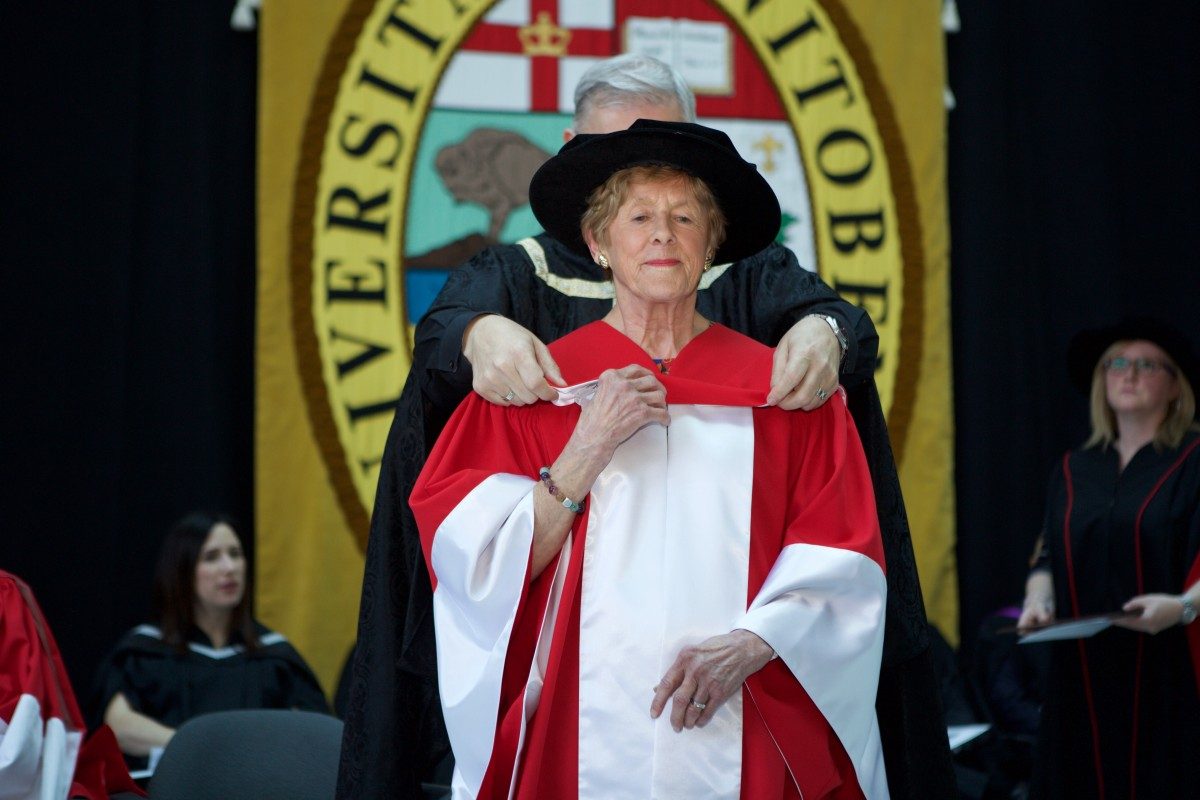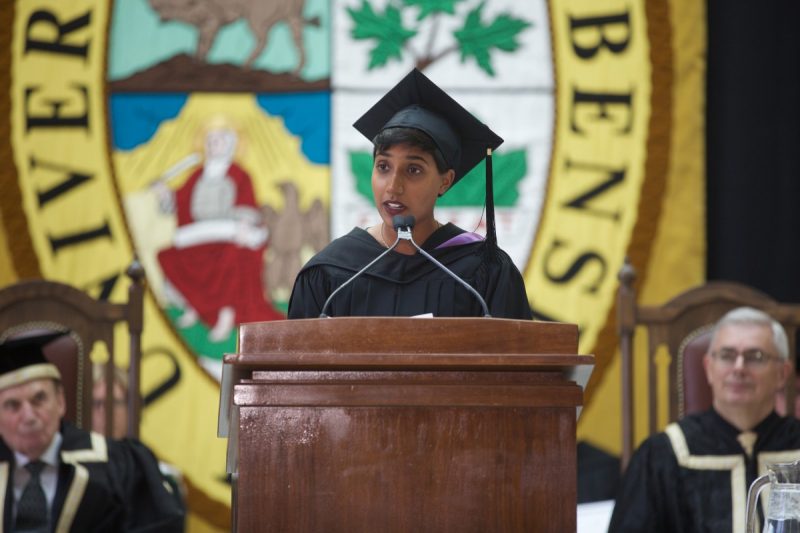
HER EXCELLENCY SHARON JOHNSTON RECEIVES HER HONORARY ACADEMIC HOOD FROM U OF M PRESIDENT DAVID BARNARD.
Open up about mental health, speaker urges Medicine grads
A prominent Canadian mental-health advocate has called on the Medicine Class of 2017 to talk openly about mental illness and seek treatment, not only for their patients, but for themselves if they are struggling.
“There’s nothing wrong with needing psychological help. What is wrong is not asking for it,” Her Excellency Sharon Johnston told the new MDs during her Convocation address on May 18. “Support each other. The healers must heal themselves.”
At the Convocation for the Max Rady College of Medicine, Rady Faculty of Health Sciences, the U of M conferred an honorary Doctor of Laws degree on Her Excellency. She has a health-care background and as the vice-regal consort of her husband, Governor General David Johnston, has worked tirelessly to dispel the stigma surrounding mental illness.
She shared the personal story of how, as a young mother who had given birth to five daughters in seven years, she felt overwhelmed and sought help from a physician. “Within six months of receiving counselling, I no longer felt anxious or angry.… Without that doctor’s wise counsel, I doubt if I would be standing before you today.”
Her Excellency summed up: “Where mental health is concerned, be helpful to your patients, supportive of your peers and kind to yourself.”
The 113-member Class of 2017 is the university’s largest-ever graduating class in medicine. As they move on to residency training, 65 per cent are staying in Manitoba. The class includes nine students of self-declared Indigenous ancestry.
Dr. Brian Postl, dean of the Rady Faculty of Health Sciences, told the class: “Our role is to serve those that need us most. In this province, that predominantly includes our Indigenous neighbours and communities.”
Tharunamaya (Tharuna) Abbu, a performance poet as well as a med-school graduate, gave a heartfelt valedictory address. Abbu, 24, grew up in Winkler after emigrating from South Africa. She is committed to justice for communities that have experienced exclusion and violence. She will undertake her family medicine residency in a program that cares for Vancouver’s Downtown Eastside communities.

Valedictorian Tharunamaya Abbu speaks at Medicine Convocation.
“Please always allow your hearts to be moved,” Abbu told her classmates. “Bend to grief when the patient who reminds you of your grandfather passes in the middle of the night. Roll with laughter when the infant you are examining pees on your favourite shoes.
“Rise with integrity when you witness injustice. And extend your hand in kindness, over and over and over, to those whose humanity has been forgotten.”
Marina Rountree-James, 38, earned her medical degree as a busy mom of two daughters, ages 4 and 7. After completing an MA in political studies, she returned to university at about age 30 to upgrade her science credits before pursuing medicine.
“I think I’m most proud of how we managed to get through all this as a family,” said Rountree-James, who grew up in Thompson and hopes one day to provide medical care in northern communities.
Margaux Beauchemin, a 27-year-old Métis graduate, proudly received her degree wearing the purple scarf that denotes Indigenous heritage. Raised in St. Boniface and fluent in French, she is one of seven in the class to graduate in the bilingual stream.
Beauchemin is going to Montreal to train in family medicine, with a particular passion for Indigenous health. Her four years in medical school were, in part, a journey of exploring and embracing her Indigenous identity.
“This is me as a whole,” she said about wearing the purple scarf with her graduation gown.






